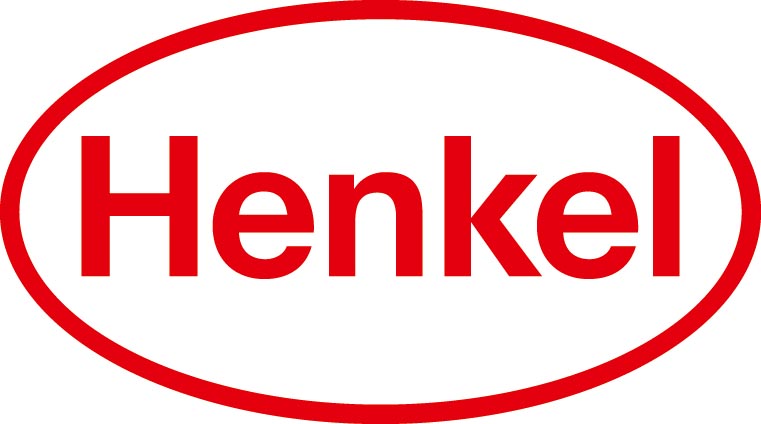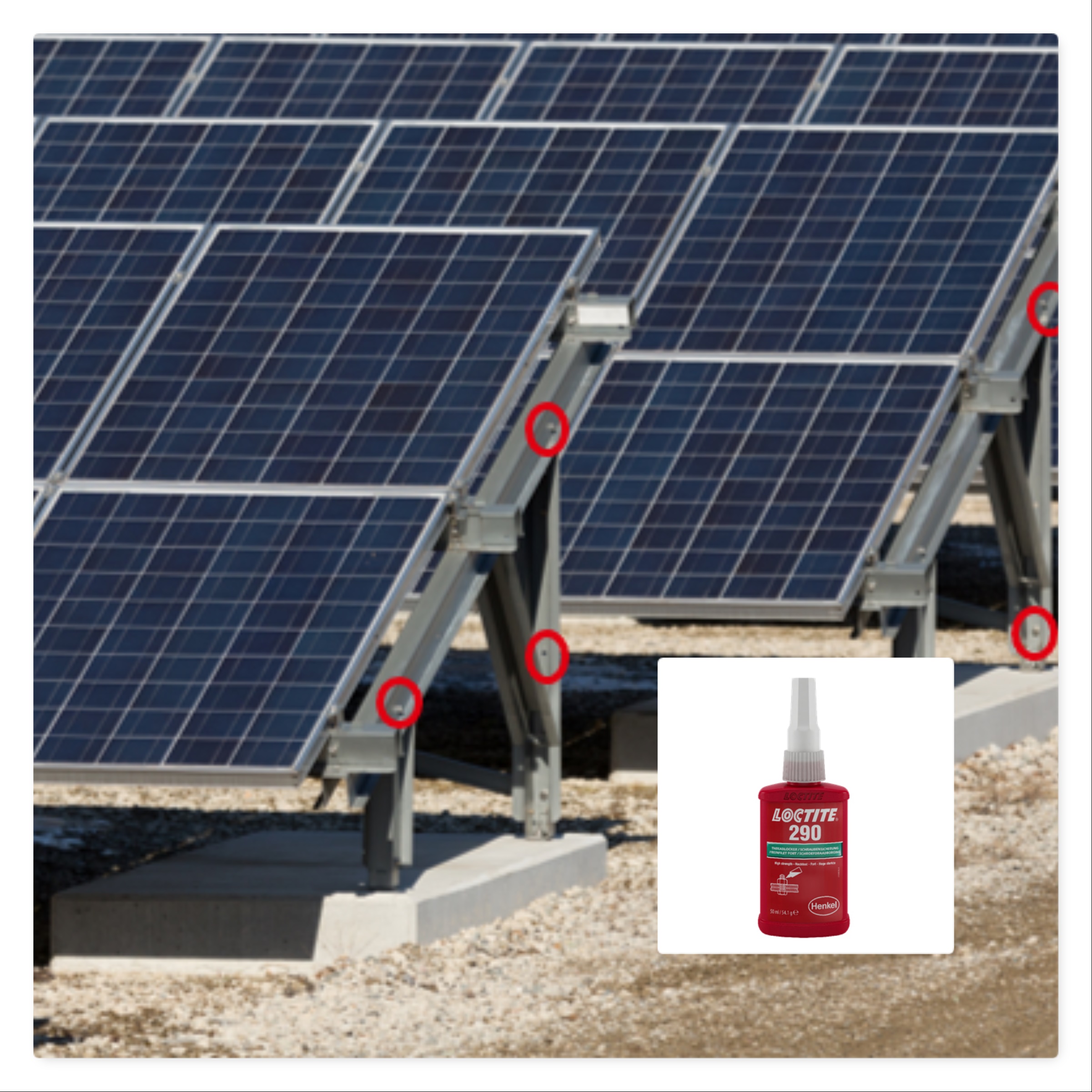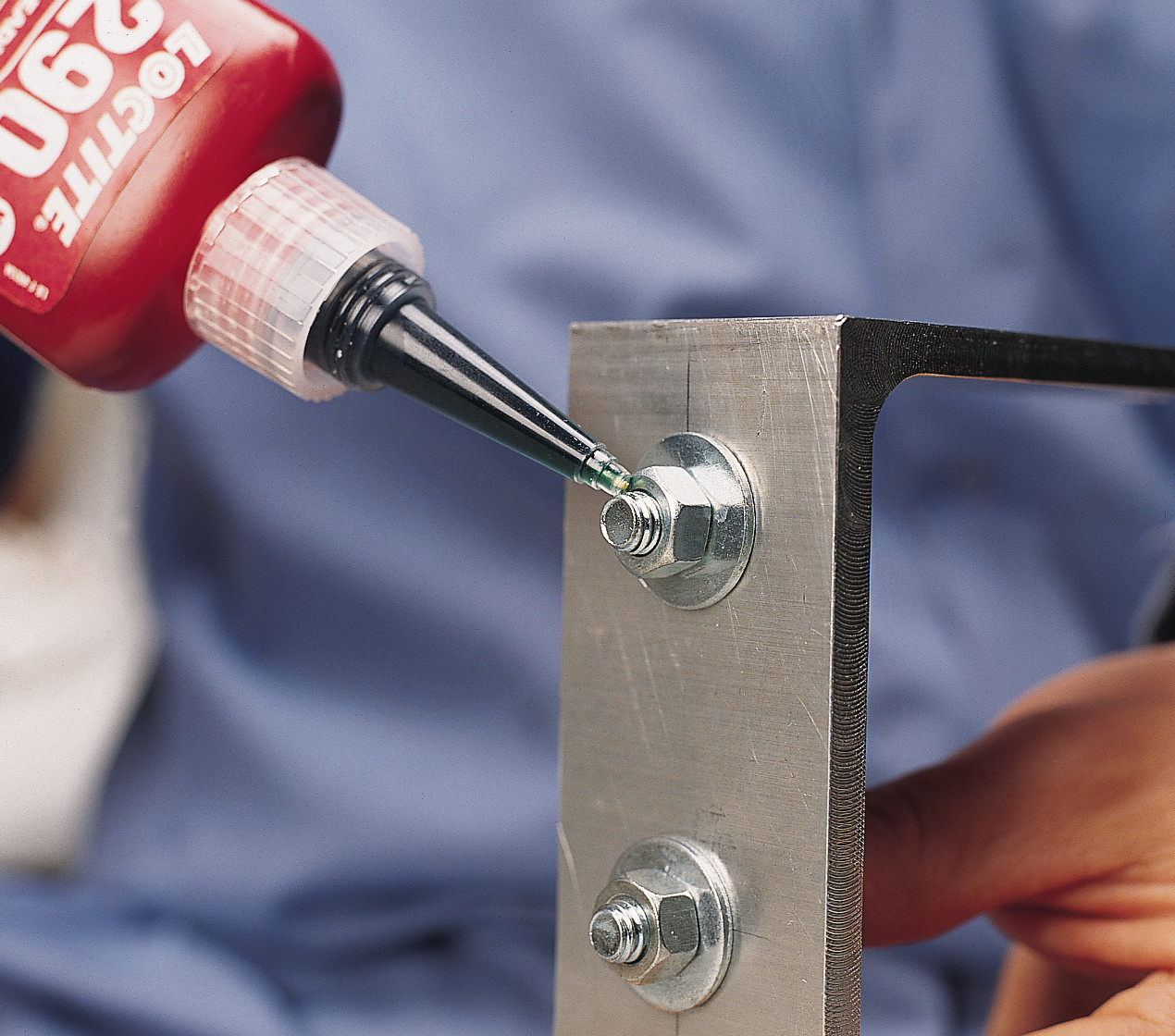
Solar Plant production with adhesive thread locking
LONDON, UK / AGILITYPR.NEWS / January 22, 2021 /
SOLAR PLANT UNDERPINS PRODUCTION & SAVES COSTS WITH ADHESIVE THREAD LOCKING
Threaded assemblies, subjected to load and vibrations, are often locked against self-loosening by either a mechanical locking device or an adhesive thread locker; or a combination of both. The merit of this is easy to understand when the assembly is in a motor-driven machine where obvious vibration can cause an unlocked nut and bolt to gradually unwind. But what about a completely static object like a solar panel? Surely, that’s a good example of a bolt-down-and-forget application?
The short answer is no, it is not. Panels are exposed to a variety of weather conditions and wind will cause enough vibration for the panel mounting bolts to loosen over time. Additionally, the panels are subject to thermal cycling, they are directly exposed to sunshine, shade and night-time temperatures as well as seasonal variations. The metal bolts therefore expand and contract with the changes in temperature, leading to an additional loss of torque.
A Japanese solar power plant decided to take action to prevent this happening when they assessed the loss of revenue for the time that panels were out of commission and the increased maintenance costs involved in rectifying bolt failure. The solution was a specific adhesive thread locker that could be applied to already-assembled nuts and bolts.
The company chose to lock its threaded assemblies with an engineering adhesive rather than a mechanical device, such as a spring washer, because it proved the most efficient. This was not only measured by the ease and speed application but also the extended service life of locked assembly.
The adhesive proved the best choice as it is the only thread locking method that addresses the gap that exists between the threads of the nut and bolt. Although imperceptible to the naked eye, this gap is still large enough to allow side to side movement of the bolt within the nut when it is exposed to wind movement; regardless of whether a mechanical locking device has also been fitted. And this problem is exacerbated by thermal cycling.
The adhesive thread locker completely fills the gap between the threads and solidifies into a tough thermoset plastic between the two metal surfaces in the absence of air, preventing any micro-movement. Generally, the adhesive is applied during installation or maintenance while the fastener is being assembled but as the Japanese energy company discovered, a wicking grade version gave them the advantage of securing all their threaded assemblies without having to dismantle them.
The product they chose was LOCTITE® 290 from Henkel, a liquid medium/high-strength thread locker for locking and sealing threaded fasteners. Because of its low viscosity and capillary action, the adhesive actively creeps in between the threaded surfaces. This meant engineers could apply the adhesive to the nuts and bolts in situ, saving significant maintenance time in the process and creating assemblies that were both long lasting and corrosion resistant.
-ENDS-


About Us
Henkel operates globally with a well-balanced and diversified portfolio. The company holds leading positions with its three business units in both industrial and consumer businesses thanks to strong brands, innovations and technologies. Henkel Adhesive Technologies is the global leader in the adhesives market – across all industry segments worldwide. In its Laundry & Home Care and Beauty Care businesses, Henkel holds leading positions in many markets and categories around the world. Founded in 1876, Henkel looks back on more than 140 years of success. In 2019, Henkel reported sales of more than 20 billion euros and adjusted operating profit of more than 3.2 billion euros. Henkel employs more than 52,000 people globally – a passionate and highly diverse team, united by a strong company culture, a common purpose to create sustainable value, and shared values. As a recognized leader in sustainability, Henkel holds top positions in many international indices and rankings. Henkel’s preferred shares are listed in the German stock index DAX. For more information, please visit www.henkel.com
Contacts